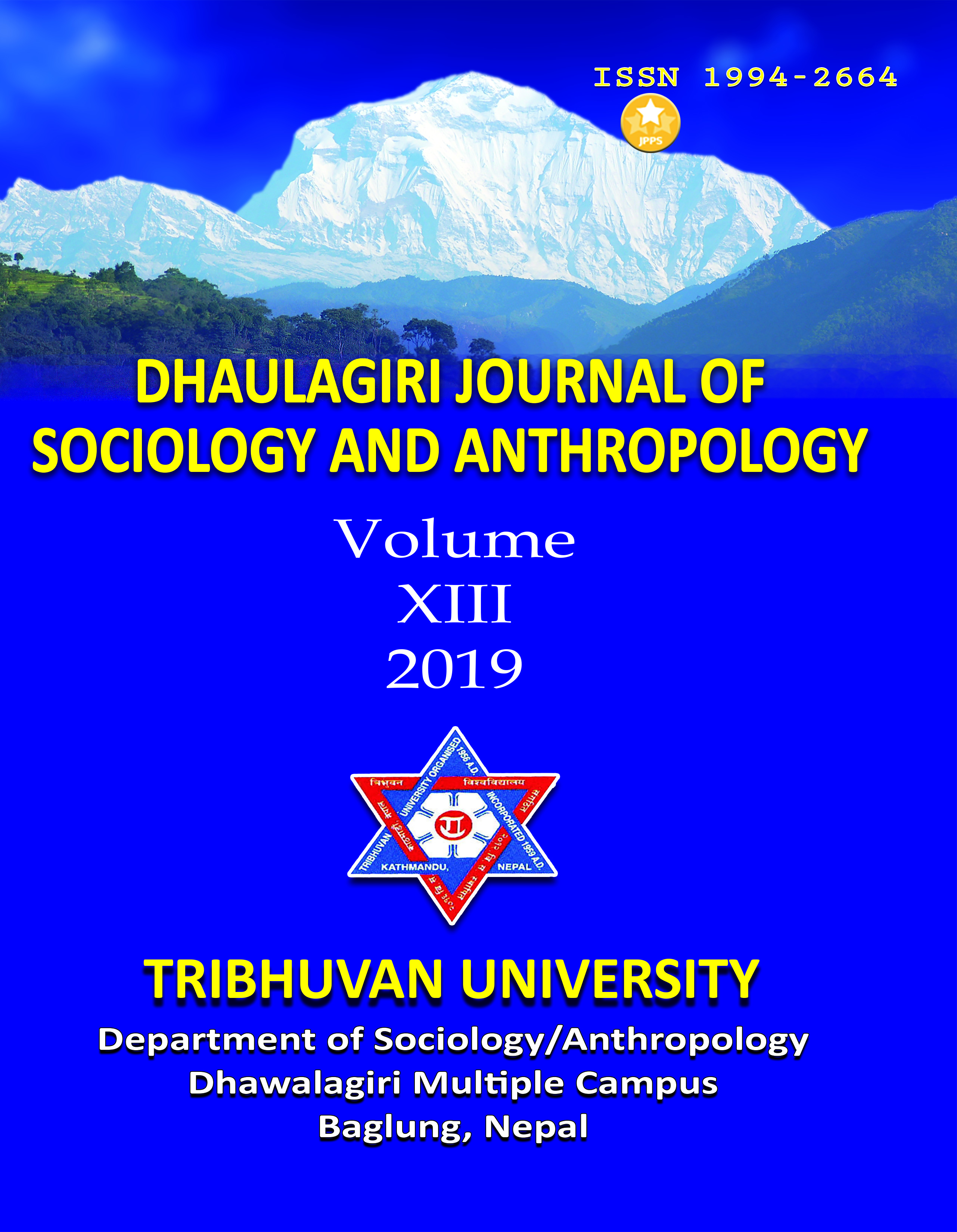Medical Pluralism among the Tharus of Nepal: Legitimacy, Hierarchy and State Policy
DOI:
https://doi.org/10.3126/dsaj.v13i0.26197Keywords:
medical pluralism, traditional healers, legitimacy, health policy, Tharus of NepalAbstract
This paper offers an understanding of medical pluralism as practiced among the Tharus of Nepal, and makes a discussion on the indigenous medicine in relation to the state health policy and the ambivalence that exists regarding official recognition of indigenous healers. Field data were collected from a village cluster of Dang district following qualitative methods: observation of healing sessions, interview with healers, patients, and key informants. Tharu healing tradition consists of three main practices: shamanic, herbal, and midwifery; practiced mainly by three types of healers: guruwa, baidawa, and surenya who employ three major strategies of healing: mantra, medicine and massage. The knowledge of healing mantras, use of local herbal medicine, and traditional midwifery and massage are the most important features of the Tharu’s indigenous healing practices. Such practices, along with those of co-inhabited non-Tharu healers and healing practices form the universe of local folk medicine. The folk medicine, which represents an oral tradition, co-exists along with scholarly traditional medicine and biomedicine. In terms of official recognition and support, biomedicine is on the top followed by scholarly traditional medicine and folk medicine falls at the bottom of the hierarchy. The scope of medical pluralism has been widened with the inclusion of scholarly traditional medicine in the official health care system. However, many of the indigenous traditional medicines that indigenous ethnic communities continue to practice still fall outside the purview of state regulation. The legitimacy of indigenous healers remains in question. An expression of sceptical and ambivalence attitudes towards indigenous healers has been reflected in the policy and planning documents. There has been an insignificant and inconsistent efforts to link indigenous healers with the official health care system and a hesitation to legitimize indigenous traditional medicine. A serious reflection is needed to move ahead from this ambivalence and inaction towards a more inclusive and democratic medical pluralism.




